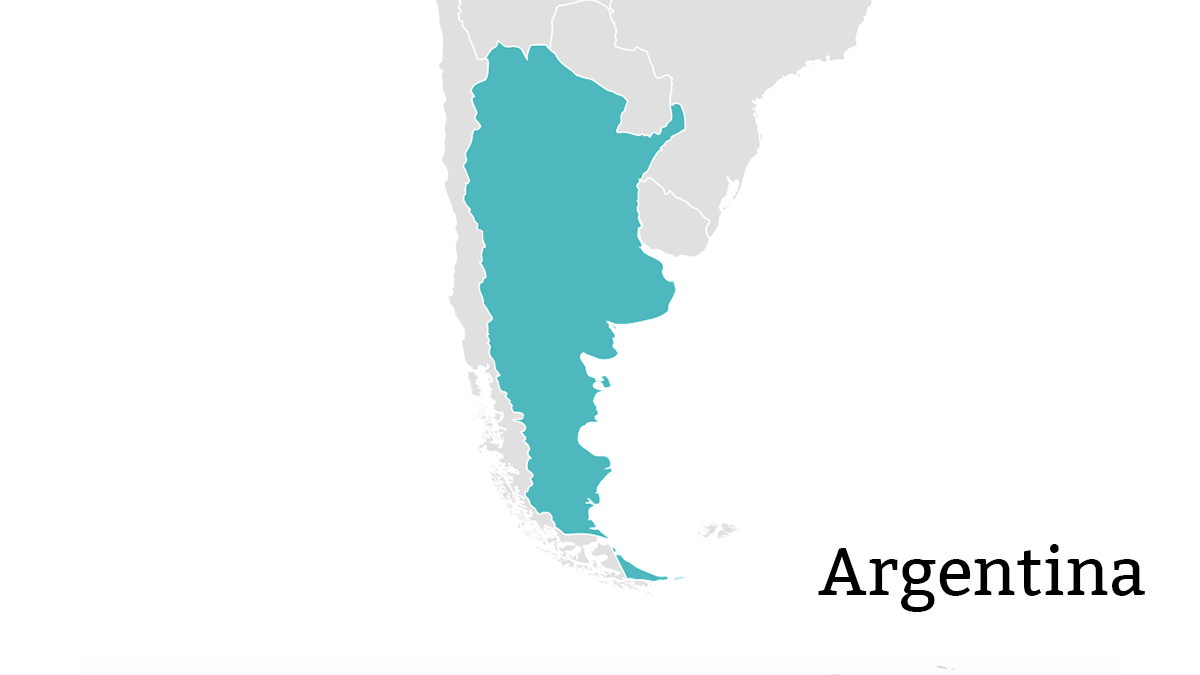
Like many countries, Argentina struggles with a digital divide where disparities in internet access mirror other disparities of population density and average income: poorer and more rural regions have lower rates of internet use compared to their peer regions.
Community networks are one solution to this coverage gap. In varying levels of maturity, scale, geography, and technological standards, community networks offer an opportunity for non-profit and cooperative internet service to exist and operate. They are present in a wide variety of countries and conform to a similarly wide variety of legal frameworks. However, many lack formal recognition that reflects their unique status.
This lack of status can impose a number of limitations on community networks. They can struggle to raise sufficient financial capital to meet licensing fees of for-profit operators, who are often larger in size. Without a formal status, they may be limited in what forms of electromagnetic spectrum they can use and/or support from the Universal Service & Access Fund, despite a potential alignment between the Fund’s objectives and the community network’s mission.
In recognition of this role for community networks, Argentina’s government included specific provisions for community networks in its major revision of its telecommunications law, Law 27,078, enacted in 2014. It declares the development of ICTs and its associated resources to be of public interest and part of the mission of Enacom, the telecommunications regulator.
The Argentinian telecommunications regulator, Enacom, passed regulatory resolution 4958 in 2018. The resolution focuses on non-profit community networks that serve rural areas, areas that have poor infrastructure, and/or socially vulnerable groups – which are typically less profitable or completely unprofitable for commercial internet providers. The resolution is proposed as a means of meeting the regulator’s mission for universal, high-quality internet access on equal terms, regardless of a user’s location or socioeconomic situation.
Community networks sought formal registration with the government that codified their unique status as a service provider. This regulation provided that option, giving special dispensation to community networks to ease the regulatory burden while also maintaining certain crucial reporting standards. This supports a diversity of internet service providers within Argentina.
Benefits of the license include an easier path towards acquiring basic infrastructure as a non-profit organization and an exemption for community networks from certain regulatory fees. This lowers the cost barrier for communities to start their own networking efforts in areas of low profitability and encourage overall greater connectivity.
The 2018 resolution also sought to be in support of the International Telecommunication Union’s (ITU) Recommendation ITU-D19, which is focused on telecommunications for rural and remote areas. The recommendation states that it is important to consider small non-profit community operators, through adequate regulatory measures which allow them to access basic infrastructure on fair terms and to provide broadband connectivity to users in rural and remote areas, taking advantage of technological advances. The recommendation also urges governments, in their planning activities and allocation of radio spectrum, to consider mechanisms to facilitate the deployment of broadband services in rural and remote areas.
Community networks are unique in multiple ways. Their work seeks to address the needs of rural communities and uses technology as a tool for digital inclusion and equality of opportunity. They operate on a not-for-profit basis and address the need for internet access often in situations where commercial internet service providers cannot or struggle to return a profit.
Through the 2018 resolution, community networks have begun to achieve formal recognition. One such example is AlterMundi, a larger and more mature community network that acted on behalf of individual community networks.
Community networks bring a multitude of different benefits to their communities. Some of the benefits introduced by AlterMundi include their development of free software to make network deployment possible for people with minimal previous technological experience. The network has also organized training workshops aimed at creating local infrastructure. To ensure sustainability, AlterMundi also provides ongoing support for networks that are already established. Additionally, AlterMundi represents the interests of community networks and disseminates information related to the experiences and tools developed, both nationally and internationally. The network model adopted by AlterMundi has already been replicated in a number of other community networks throughout other regions in Argentina, allowing for further digital inclusion for the underserved.
By establishing special licensing and regulation terms for community networks, the government has established a sustainable mechanism to help bring affordable internet access to new, previously unconnected populations.
Suggested Citation: Alliance for Affordable Internet (2020). “Argentina: Licensing for community networks.” Good Practices Database. Washington DC: Web Foundation.
